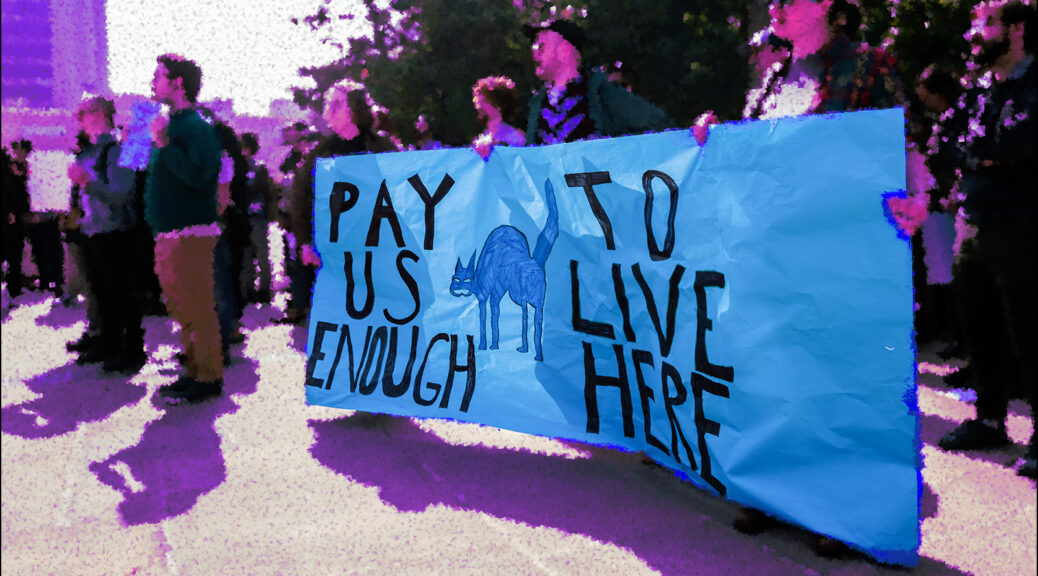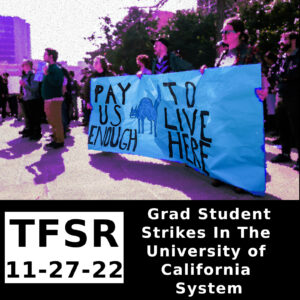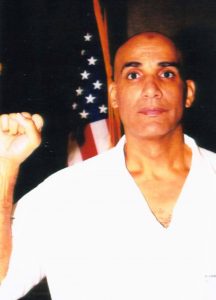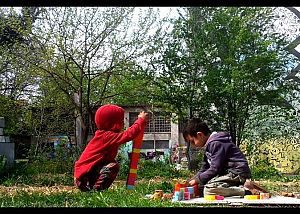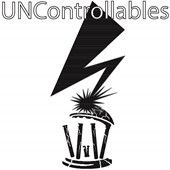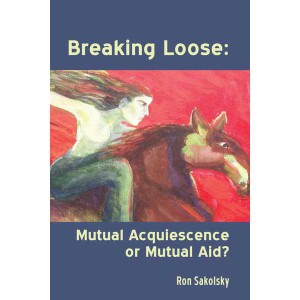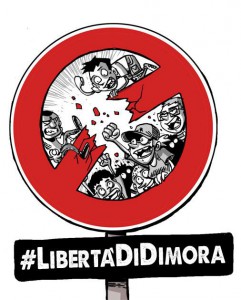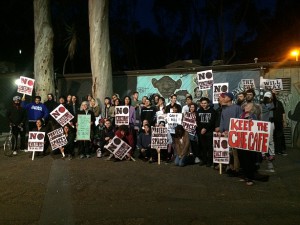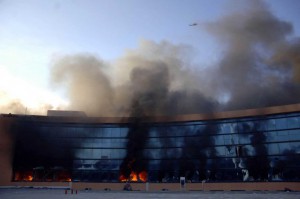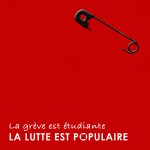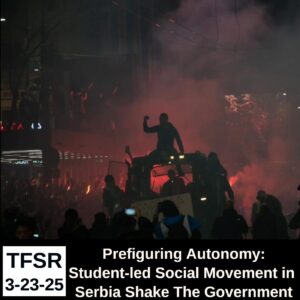
This week, we speak with Ilik and Koko, two students from Serbia, and another anarchist comrade who participated in student and other movements earlier in this century to speak about the anti-corruption protest that have rocked the Serbian Progressive Party (SNS) government of president Vučić’ since the deadly collapse of a recently opened concrete train platform canopy in Novi Sad on November 1st 2024, so far killing 16 people.
Starting with student demands for transparency and accountability from the government that were answered with violence and subterfuge, the protests have grown and drawn from wider and wider portions of the public into millions taking the streets, creating autonomous assemblies and plenums rejecting the political parties. The guests speak about the growth, the reactions against it, and the possibilites they see in what has the seeds that could bring it from social movement to social revolution.
Some other reading sources (thanks Rey!)
- https://en.wikipedia.org/wiki/2024%E2%80%93present_Serbian_anti-corruption_protests
- https://www.masina.rs/eng/
- https://www.rosalux.de/en/news/id/53121/serbian-students-are-reimagining-what-society-could-be
- https://biltenstanar.rs/en/analysis/student-protests-and-changes-without-politics/
Announcement
Fundraiser for Journalist in North Gaza
As the Zionist Entity and it’s racist uncle, the USA, resume the genocide of Gaza, there’s a fundraiser going to support Hamza M Salha, a young journalist and English student and his extended family of 40 in the north.
You can find a video from Franklin Lopez about Hamza and links to his fundraiser at the following social media posts:
- https://kolektiva.social/@franklinlopez/114192086634560110
- https://www.facebook.com/watch/?v=1161559405126258
- https://www.instagram.com/p/DHZsl2AtEt2/
You can read some of Hamza’s writings below:
- “I was buried alive beneath the rubble and awoke in a ‘graveyard'” (17 March 2024) https://www.middleeasteye.net/opinion/war-on-gaza-buried-alive-beneath-rubble-awoke-graveyard
- “Terrified, starving, crushed: The agonising death of my grandfather in Gaza” (2 Nov 2024) https://www.aljazeera.com/features/2024/11/2/terrified-starving-crushed-the-agonising-death-of-my-grandfather-in-gaza
- “Israel turned Jabalia into a barren desert and made our home a grave” (25 November 2024) https://www.middleeasteye.net/opinion/israel-turned-jabalia-desert-made-home-grave
- “Israel’s May 2023 military bombardments on the Gaza Strip killed 33 Palestinians in 5 days and disrupted countless lives.” (3 September 2023) https://wearenotnumbers.org/a-shadow-over-our-childhoods-the-peril-of-occupation/
- “Famine is already here” (8 March 2024) https://electronicintifada.net/content/famine-already-here/45026
- “Are we going to die this time?” (14 June 2023) co written with Khaled El Hissy https://electronicintifada.net/content/are-we-going-die-time/37966
- “The Jabaliya Massacre: Heaven Embraces Five Angels” (29 August 2022) https://www.palestinechronicle.com/the-jabaliya-massacre-heaven-embraces-five-angels/
- “Tensions, struggle and an unshakable will to stay” (5 March 2025) https://electronicintifada.net/content/tensions-struggle-and-unshakable-will-stay/50458
- “The night Israeli forces left families buried alive under rubble” (10 December, 2024) https://www.newarab.com/features/night-israeli-forces-left-families-buried-alive-under-rubble
- “Gaza’s open-air cinema offers temporary escape from blockade” (21 September, 2023) https://www.newarab.com/features/gazas-open-air-cinema-offers-temporary-escape-blockade
Continue reading Prefiguring Autonomy: Student-led Social Movement in Serbia Shake The Government

